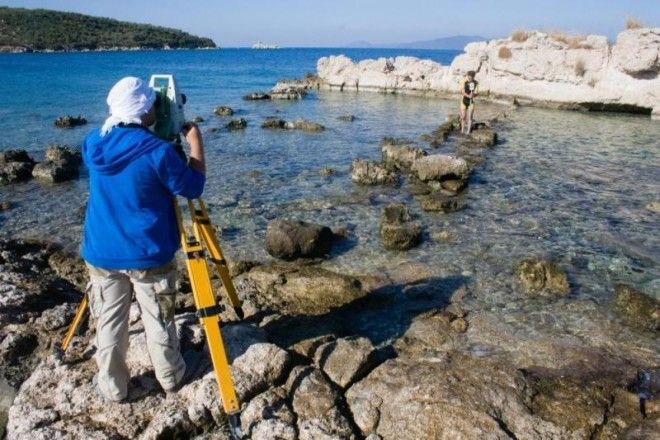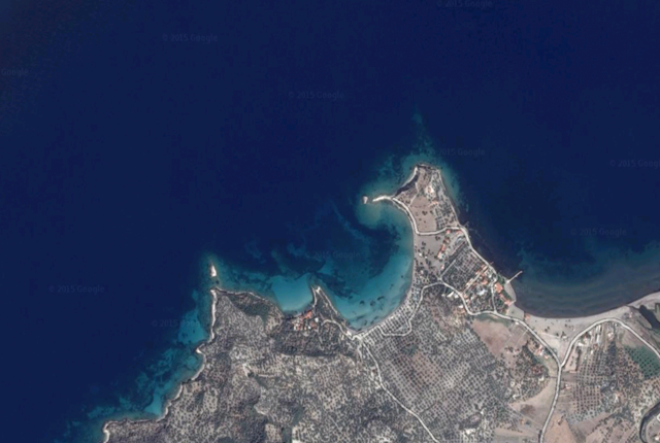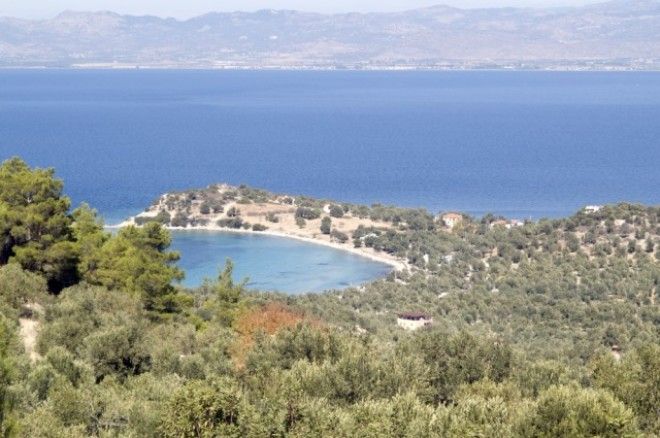A team of researchers, led by the German Archaeological Institute, drilled into the ground of the peninsula to examine the rock that formed it. They found that it was made up of loose soil and sediment, which they think was deposited at some point before the Middle Ages, joining the island to the mainland. This theory was corroborated by the discovery of the remains of a submerged ancient harbor, as well as the earlier findings of pottery fragments, which suggested that the region used to form part of an important trade route.

The archeologists carrying out their research on the islands.
The island was one of three, called the Arginusae, of which two are still separated from the mainland. It was where the third one had gone that had puzzled the researchers. They now think that perhaps run off from agricultural fields on the mainland, or even potentially an earthquake could have caused the narrow channel, which is a few hundred meters wide, to fill up with soil and sediment, forming the spit of land.
“It was not clear that these lands were actually the Arginus islands that we were looking for until our research,” Dr. Felix Pirson, director of the German Archaeological Institute in Istanbul who helped carry out the research, told the Turkish newspaper Zaman. “By examining the geological samples obtained through the core-drill method, we recognized that the gap between the third Arginus island and the mainland was indeed filled with loose soil and rock, creating the existing peninsula.”

The islands were the location of the Battle of Arginusae, a naval clash that was fought between the two great Greek city states of the time – Athens and Sparta – in 406 B.C.E. It was a resounding victory for the Athenian navy, although the triumph was short-lived as after the battle took place, the Athenian citizens voted for the generals who led the fight to be executed as they failed to rescue those sailors who were stranded after the conflict. The battle formed part of the Peloponnesian War, during which the two states fought bitterly for control of the Aegean Sea and its surrounding regions, and which Athens eventually lost.

